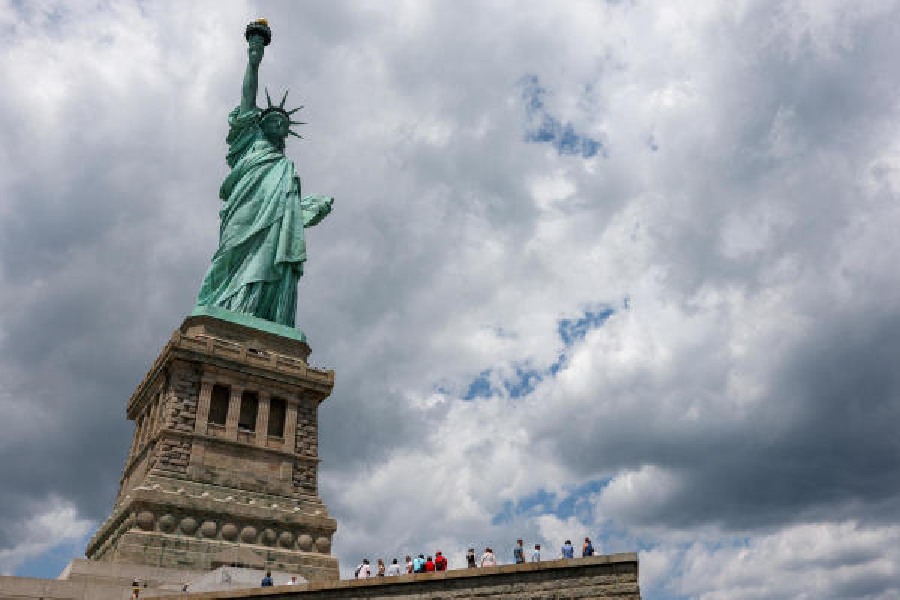Any traveller who has picked up an international guidebook knows the Unesco designation as shorthand for a must-see cultural destination that’s worthy of a detour.
But the UN Educational, Scientific and Cultural Organisation has also become the target of an intense Chinese influence campaign in recent years as Beijing has sought to increase its reach over educational curriculums, historical designations and even artificial intelligence.
President Donald Trump’s decision on Tuesday to withdraw the US from the group removes a powerful check on China’s effort, in the latest example of how the White House retreat from international institutions offers an opening for China to advance its soft power.
The US was once the largest Unesco backer, accounting for nearly 25 cents of every dollar. But Washington has had an on-again-off-again relationship with it for years, especially since Trump first took office in 2017, and China has stepped up to take its place. A Chinese official is now Unesco’s deputy director general, a post that diplomats said is often awarded in exchange for political or monetary favours.
Unesco has lent support to major priorities for China’s top leader, Xi Jinping, including the global infrastructure program known as the Belt and Road Initiative. Beijing has also lobbied heavily for World Heritage designations and is jockeying to surpass Italy as the country with the most culturally significant sites. Some of those sites are in oppressed regions like Tibet and Xinjiang, where many local residents view them as an attempt to appropriate and control their culture and history.
And while Unesco wields tremendous clout over what counts as history, it is also the UN agency in charge of setting artificial intelligence guidelines. Unesco has an agreement with iFlytek, a major Chinese AI company, to cooperate on higher education in Asia and Africa, according to Chinese state media. (Unesco said it has partnerships with many artificial intelligence companies worldwide.)
“Unesco is a battleground for cultural and intellectual power and influence,” said David Killion, who was an ambassador to Unesco under President Barack Obama. “We are conceding the soft power realm to an expansionist, authoritarian great power.”
The Chinese embassy in Washington, in a response to a request for comment on its influence in Unesco, said that international organisations are “not arenas for geopolitical games
“China never intends to challenge or replace the US,” the embassy said. “We hope that all parties could see China’s positive role in Unesco objectively.”
Unesco said that, while China will soon be the biggest funder, it is underrepresented on the agency’s staff. “We are not in a position to comment on the diplomatic strategy of one member state or another,” an agency spokeswoman said in a statement.
The state department did not respond to a request for comment but issued a statement saying that Unesco advanced “a globalist, ideological agenda for international development at odds with our America First foreign policy”.
The pullback reflects a broader American retreat from international bodies and Trump’s dim view of soft power, the longstanding idea that America’s cultural and economic influence abroad strengthens its hand in foreign affairs.
Trump has announced America’s departure from the World Health Organisation and gutted the US Agency for International Development. A White House review of UN agencies is due in early August, and experts expect the White House to defund others.
“The US is no longer reliable,” said Wu Xinbo, dean of the Institute of International Studies at Fudan University in Shanghai. “China’s status and influence in the UN will definitely increase accordingly. This is certain.”
Unesco was the first UN agency that Xi visited after becoming China’s leader in 2012. The US had withdrawn funding under 1990s legislation requiring a cutoff of American financing to UN agencies that accepted Palestine as a full member. That provided an opening for China.
Beijing got Xi’s wife, Peng Liyuan, appointed as a special envoy, and sent money to Paris that it earmarked for its foreign policy goals.
Tang Qian, a former Unesco assistant director general from China, recalled in his 2020 memoir that his government viewed financing the agency as a way to expand Chinese influence. Washington was not on the sidelines during this period, despite the funding cuts. The Obama administration kept its diplomats, like Killion, in Paris to work on issues like Holocaust education and countering Brazil and China on internet regulation.
But in 2017, the Trump administration announced it would withdraw from the organization completely, citing anti-Israel bias. After President Joseph R. Biden took office in 2021, Killion and others campaigned to get the US to return.
“The void left by the US is being filled by other major powers, like China, who understand the immense soft power opportunity that exists at Unesco,” read a document that they circulated within the Biden administration.
Congress authorised a funding waiver and the US rejoined Unesco. The waiver explicitly mentioned concerns about Chinese influence.
The new envoy set about trying to restore US influence, securing partnerships for tech companies like Microsoft and Netflix and leading a group, with the Ghanaian ambassador, that worked on artificial intelligence and digital learning in Africa, where Chinese companies had been making inroads.
Trump is hardly eager to empower China. He has launched a trade war and imposed export restrictions on American technology. But Trump favours economic and military might over foreign aid and cultural programmes.
China views soft power as essential to expanding its global influence and Unesco as key to establishing its culture as prominent on the world stage. China leads the world in the number of “intangible cultural heritages” — humanity’s most worthy creations, like the Spanish flamenco dancing, the Thai prawn soup and Jamaican reggae.
World Heritage sites attract so many tourists that a Unesco designation can transform economies. Sites in western countries have dominated this list, and Asian countries have lobbied heavily to have their history acknowledged.










